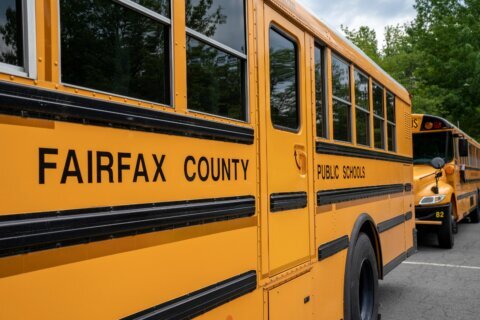School leaders in Fairfax County are blasting recent changes to the way Virginia’s public schools are rated, arguing the new system will paint an inaccurate picture of how schools and students are performing.
During a work session last week, Michael Molloy, director of the school district’s government relations office, told school board members the new system is “extremely heavily weighted toward mastery, toward passing a test,” and that while there is a growth component included in the evaluation, it’s “a relatively limited component, less so than I think the current system accounts for growth.”
The next day, Virginia’s Board of Education held a special meeting and approved changes that will alter the way public schools are rated starting in the 2025-26 school year. For one, an accountability system will be used to evaluate a student and school’s overall performance. Separately, an accreditation system will be used to determine if a school is complying with requirements detailed in state law.
According to the most recent state data, over half Virginia’s public schools would be labeled “off track” under the new system.
“This is a way to delegitimize public schools, so that conservative elected officials can move money for public schools for all, to vouchers for parents to choose some other schools that will magically appear as choices in communities,” board member Melanie Meren said.
In a statement, Gov. Glenn Youngkin said the new system will offer a clearer picture of how schools are really performing.
“This is a great step for us to fully be transparent on how schools are doing with result to kids outcomes, but most importantly, then our ability to drive support, to make sure that every Virginians getting a chance to get the best education,” Youngkin said.
In her weekly newsletter Tuesday, FCPS Superintendent Michelle Reid said it’s likely schools with more economically disadvantaged kids will have a weaker overall performance rating.
“With shifts in how student academic, readiness, and graduation outcomes are measured, there is the potential for misrepresenting the overall health of FCPS schools and overidentifying schools as underperforming and needing external support,” Reid wrote.
The new system, according to Molloy, is similar to those used in Florida, Texas, Louisiana and Tennessee.
At last week’s work session, Molloy highlighted the new way English language learners will be incorporated into the system. Under the current system, English language learners’ scores don’t count toward a school’s overall score until the student has received 11 semesters of English language instruction. The new system will change that to three semesters, Molloy said.
“I have seen many of our multilingual learners go on to become doctors, become teachers, become business owners in our community,” board member Marcia St. John-Cunning said. “But if we are going to measure them by the standard that this state is putting forward right now, they’re going to be perceived as failures, and the message that we’re sending to our students and to our families is that they are failures.”
In a statement, a Virginia Department of Education spokesman said the current accreditation system “excludes English learners from the system for five-and-a-half years and overlooks the needs of more than 10,000 students with disabilities altogether. Those advocating for Virginia to continue ignoring the needs of these students are really saying that those students don’t matter and that they don’t care about those students’ future success.”
During the work session, Reid said she’s not “able to envision that any of these changes will improve teaching and learning.”
Get breaking news and daily headlines delivered to your email inbox by signing up here.
© 2024 WTOP. All Rights Reserved. This website is not intended for users located within the European Economic Area.








